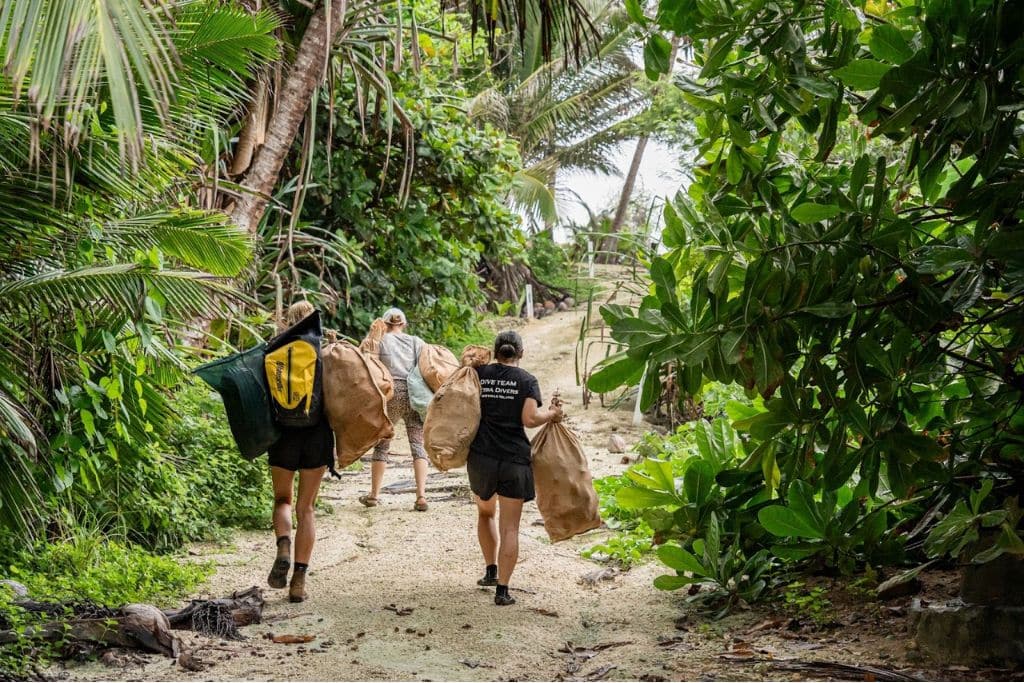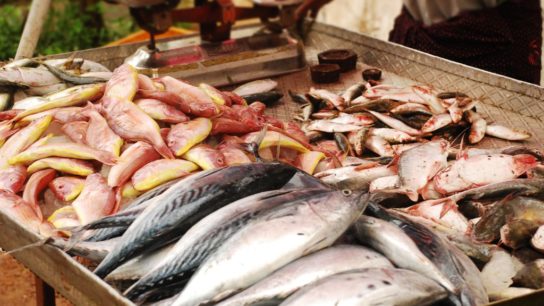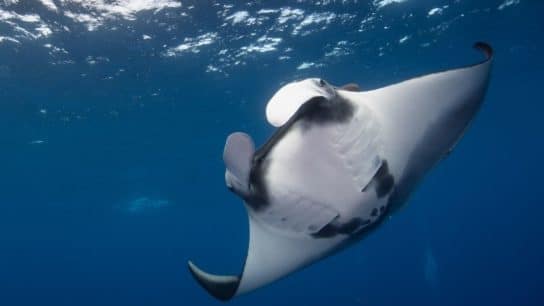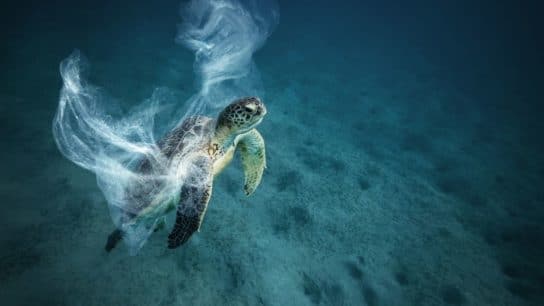“Seas are rising; glaciers are melting; entire coastal communities are watching the shoreline creep toward their doorsteps; fisheries are collapsing from overexploitation; plastic waste is outnumbering fish in some parts of the ocean. And while these certainly are scientific statistics, they are more so symptoms of deeper issues. When I finally understood this, truly grasped it, remaining a passive sidelined observer became impossible,” writes Andi Cross.
—
By Andi Cross
The first time I learned to scuba dive, climate change wasn’t on my mind. I was focused almost entirely on just breathing, simply trying to survive. I was finning incorrectly, struggling with my buoyancy, clouding my mask with bulging eyes terrified of what mistakes I might make. But then, 60 dives later, something finally clicked. I found stillness. I looked around, and for the first time in my life, I was inside a world I had only ever seen from the surface.
Those descents – into coral caverns, swimming alongside schools of fish, or withstanding roaring currents – changed everything for me. It felt ancient, delicate and alive; it did not seek my presence but allowed it. This tolerance is what I have learned to cherish. But here is the thing about the ocean: once you have seen it like that, in all of its glory, you cannot unsee it. And to my novice eyes, I did not realize what was missing. I needed to be educated on it.
The ocean covers more than 70% of our planet. It absorbs over 90% of the excess heat generated by greenhouse gas emissions. It acts as the planet’s lungs, thermostat, and circulatory system. Yet, it is in profound trouble.
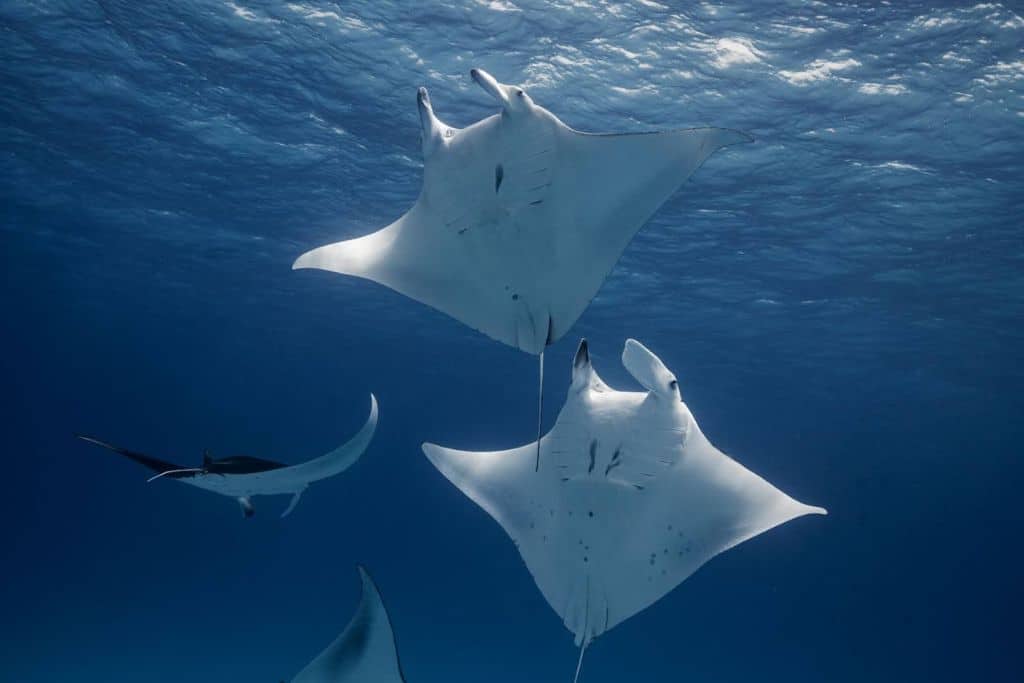
Just a 1C rise in ocean temperature is enough to trigger mass coral bleaching. We have already seen this – repeatedly. Over 50% of the world’s coral reefs are teetering on the edge. Ocean acidification, caused by CO2 dissolving into seawater, is making it harder for marine species like plankton, shellfish, and coral to form the calcium carbonate structures they need to survive.
Meanwhile, the seas are rising; glaciers are melting; entire coastal communities are watching the shoreline creep toward their doorsteps; fisheries are collapsing from overexploitation; plastic waste is outnumbering fish in some parts of the ocean. And while these certainly are scientific statistics, they are more so symptoms of deeper issues.
When I finally understood this, truly grasped it, remaining a passive sidelined observer became impossible.
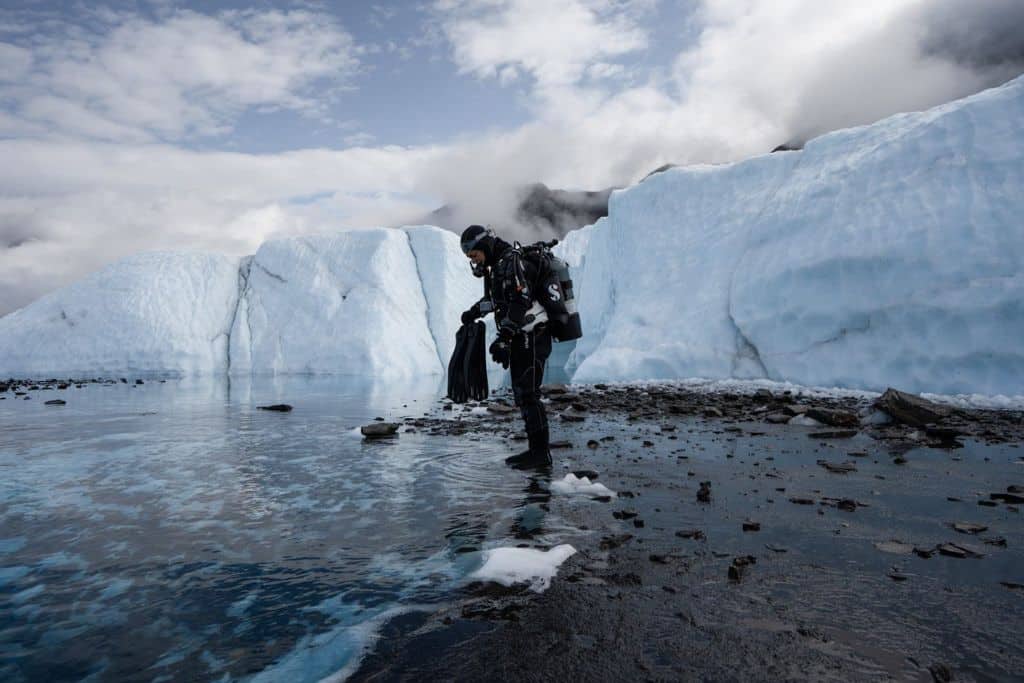
A New Mission
I had spent years in corporate strategy – helping mega brands grow, expand, market themselves as innovative and impactful. I was told I was good at it. But at some point, I started questioning the frameworks we normalized. You know, things like growth for growth’s sake, or buzzwords like “impact” or “sustainability” serving as simply checked boxes in a slide deck. Then I started diving more. Traveling in order to dive. Listening to the people I was meeting in the water and along the shorelines. And that’is when I began to see what the data alone could not show me: the patterns, the unraveling, the deeply human impact sitting right under our noses.
In California, seaweed scientists shared how rising ocean temperatures devastate critical underwater carbon sinks. In Honduras, coral gardeners are working reef by reef, fragment by fragment, trying to bring dying systems back to life. In coastal Japan, elderly women, some even 90+ years old, freedive not for sport, but to harvest marine life to feed their families. And after decades of perfecting this practice, only now are they witnessing these species vanish before their eyes. In Cambodia, artisanal fishers are being pushed out of the water entirely, as illegal bottom trawlers from neighboring countries strip their waters bare. Meanwhile, in Raja Ampat, Indonesia, leopard sharks have been pushed nearly to extinction, and community-led teams are helping to rewild them.
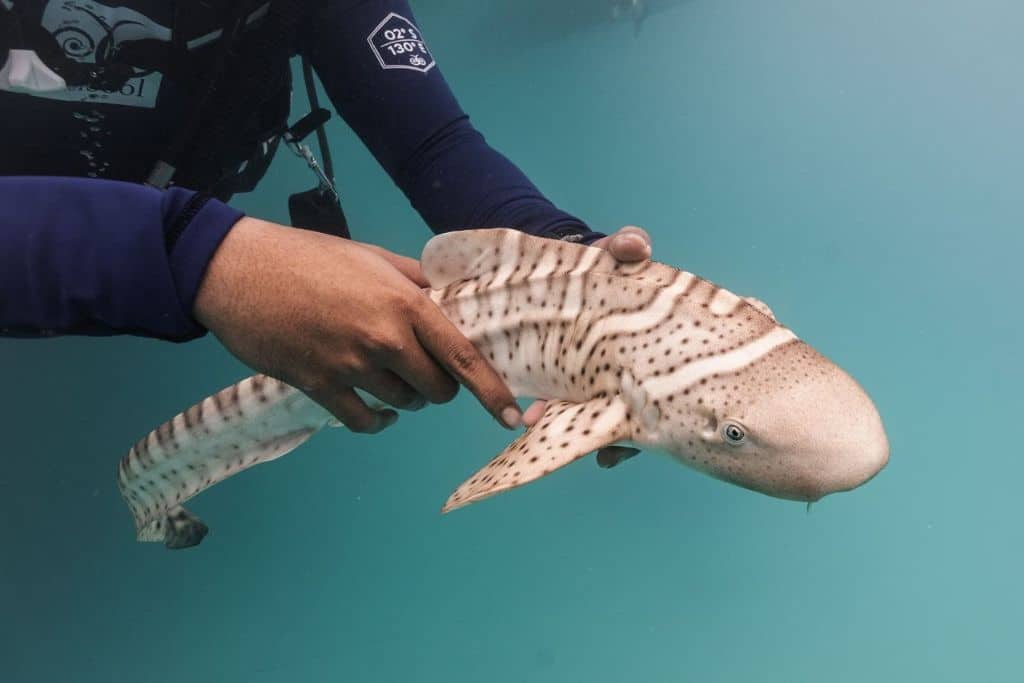
Every corner of the world that I went to, I kept seeing the same thing: those contributing the least to climate change are paying the highest price.
This is what inspired Edges of Earth – a company that sits at the intersection of fieldwork and future-building. My team and I are half expeditionists, half consultants. On one side, we live alongside vulnerable communities, documenting stories from climate change’s frontlines. On the other, we work with global businesses to help them rethink how they show up – for the planet, for people, and for future generations.
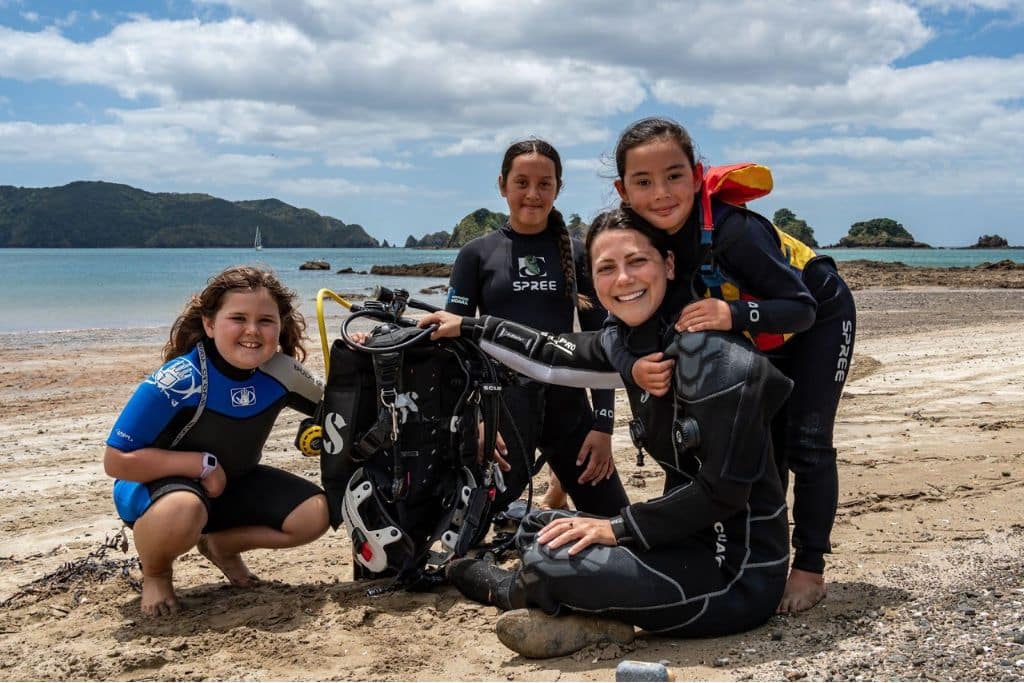
What makes us different is our focus: we seek out the positive outliers. The regenerative farmers, the scientists, the Indigenous leaders, the youth-led tech projects, the grassroots nonprofits – the people and ideas quietly mitigating the climate crisis in ways that are actually working. By sharing these solutions more broadly, we help document what is working, where it is happening, and why. Systemic change starts by mapping these dots and connecting them wherever we can – helping to apply what is working in similar regions.
We spotlight the hard truths along with the meaningful solutions, because ultimately, both matter. Stories of loss must be met with stories of resilience —– otherwise, all we are doing is numbing people to tune out the familiar noise. We are not here to sell doom. We are here to show reality. To create a bridge between what is breaking and what is possible when people frankly give a shit.Let’s be clear: the climate crisis is not complicated to understand. Its number one driver is the burning of fossil fuels – coal, oil, and gas. That’s over 75% of global greenhouse gas emissions. Industrial agriculture, particularly methane from livestock, is another major contributor. Deforestation. Plastic production. Overconsumption.
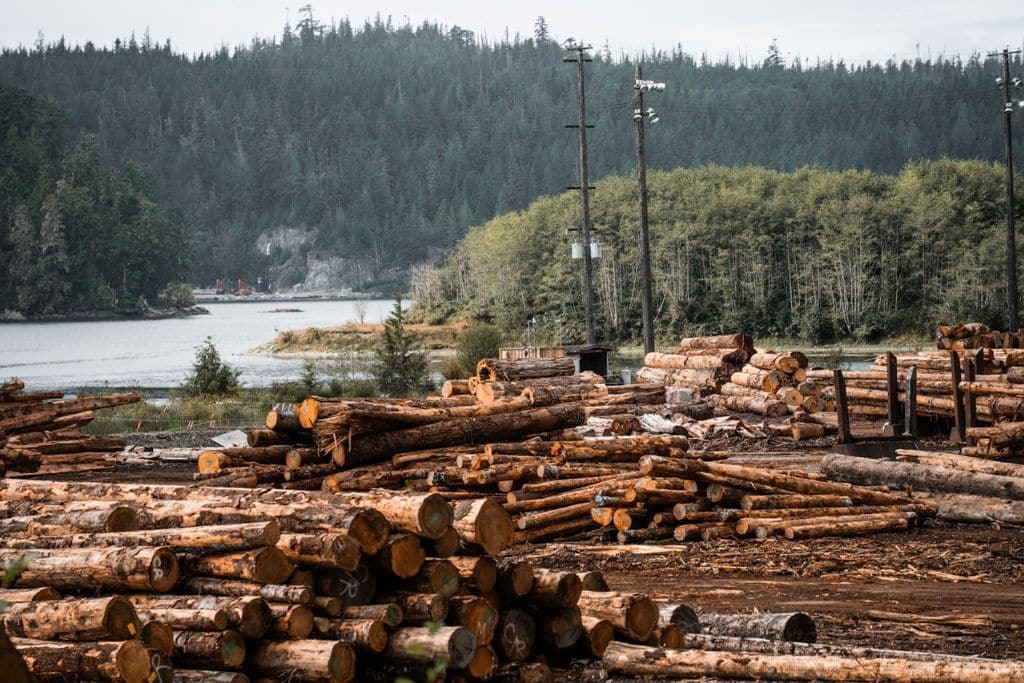
We already have so many solutions to this at play. We know how to decarbonize our economies, transition to renewable energy, regenerate ecosystems, redesign supply chains, and rethink food systems. What we lack is not knowledge – it is coordination. The complication is not the problem itself – it is mobilizing the powers of the world to care.We need to rally around a shared vision and implement solutions at scale. We also need to stop letting greed, power, and short-term profit get in the way of our long-term survival on this planet. And yet, here we are, treating the problem like it is too complex to fix. Or in some cases, believing it is not even real.
What I have learned underwater, in every dense kelp forest, glacial ice pool or reef system I have visited is that complexity cannot be an excuse. Nature is complex too, but it adapts, rebuilds, self-regulates. If we could mirror even a fraction of that humility and intelligence, we would be in a better place.
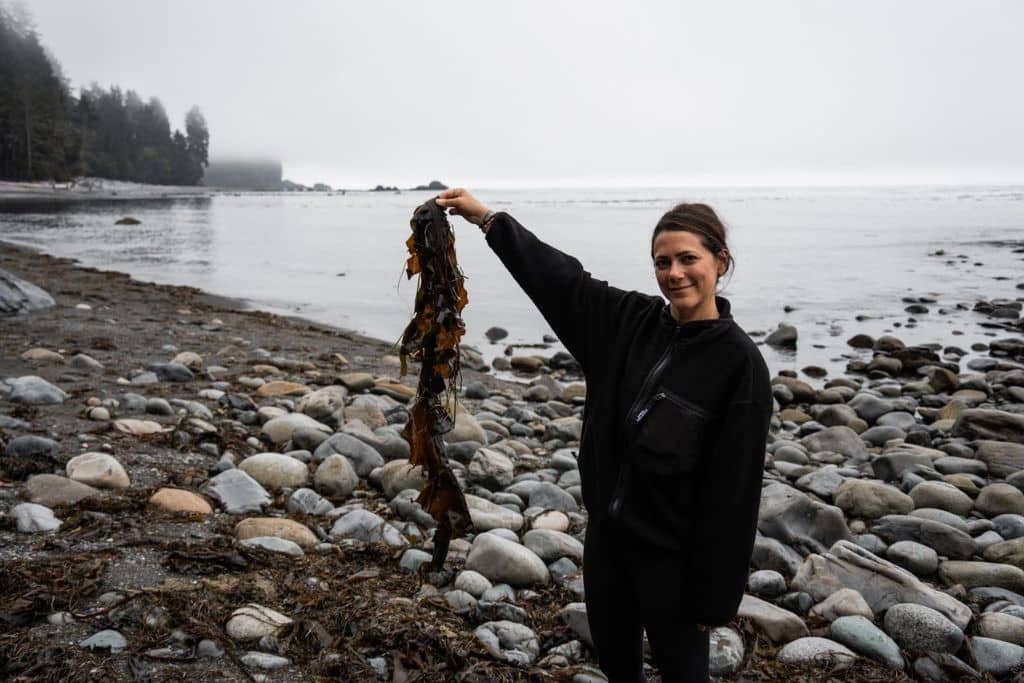
Instead, we have built global systems that prioritize profit over planetary stability. Ones that reward short-term thinking. That sees the ocean as a resource to extract from rather than a system to live within. While wealthy nations drag their feet on climate commitments – most having failed to meet their adaptation finance pledges – coastal communities are doing the work regardless. They are restoring their natural buffers like mangroves; switching to regenerative ocean farming; and educating youth not just about sustainability and a changing world, but about sovereignty.
While I started this journey knowing so little about the ocean, what I knew well was how corporate systems work. And now, it is time to start challenging these norms much more critically from within.
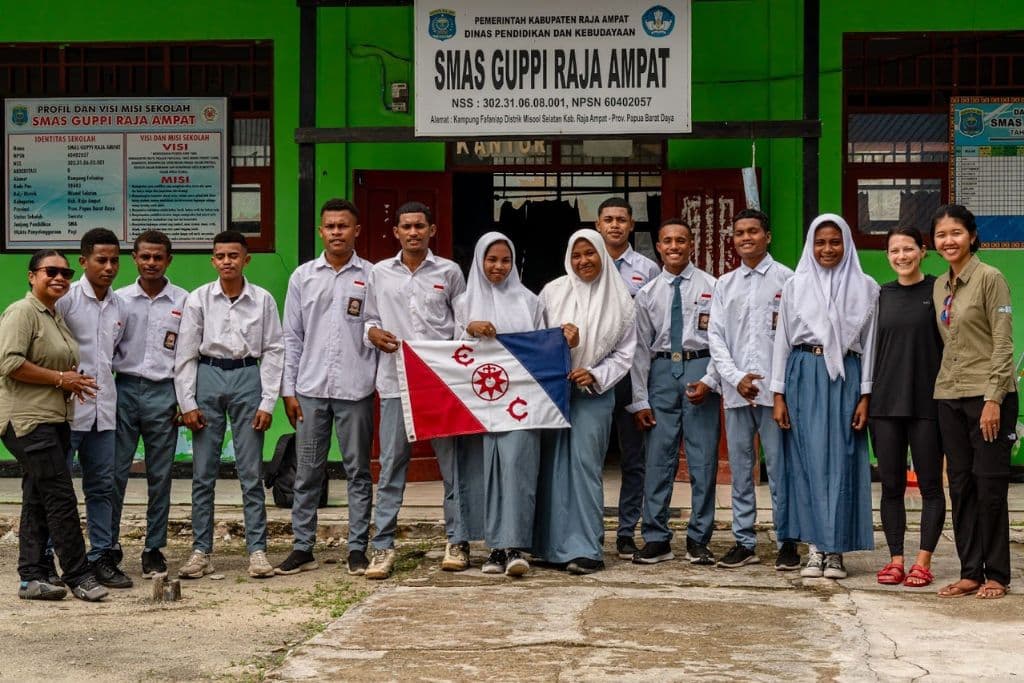
So, I am using the tools I have – storytelling, partnerships, in-field exploration and a network – to help people feel what is at stake. To show what climate change looks like when it is not buried in a report, but staring you in the face in the form of a dead reef or a flooded school. And I am here, alongside an incredible team who we have assembled from around the globe, to help businesses do well and do good, as these two are not mutually exclusive.
The work we focus on is not about guilt. It is about clarity. It is about a way forward. Because once you experience the ocean and meet with its long unsung stewards – once you feel the quiet unraveling of ecosystems, the courage of communities fighting to protect them, the stubborn beauty that still exists – you realize that neutrality is a luxury.
Here, out in the wild, there are no sidelines. There is only inaction disguised as moderation.
—
This story is part of an editorial collaboration between Earth.Org and Edges of Earth Expedition, a team dedicated to uncovering powerful stories from the frontlines of the climate crisis. Leading the charge is Andi Cross – an expeditionist, impact strategist, writer, and SSI divemaster – who has spent over two years traveling the world, immersing herself in the realities of environmental change.
This story is funded by readers like you
Our non-profit newsroom provides climate coverage free of charge and advertising. Your one-off or monthly donations play a crucial role in supporting our operations, expanding our reach, and maintaining our editorial independence.
About EO | Mission Statement | Impact & Reach | Write for us
